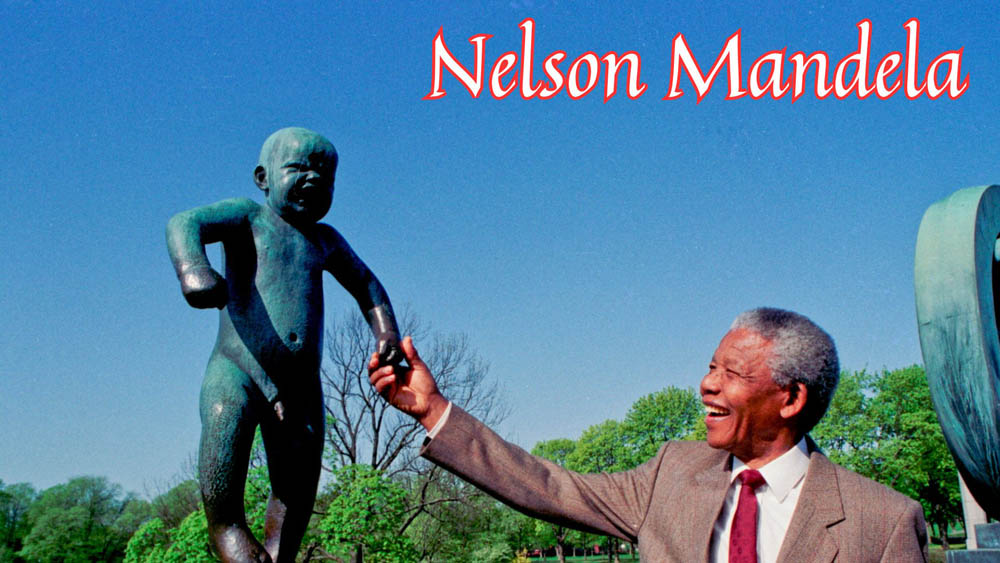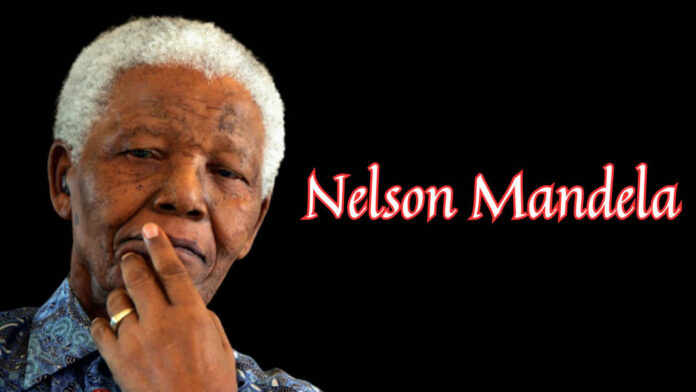Nelson Mandela, often referred to as the “Father of the Nation” in South Africa, was a man whose life exemplified resilience, determination, and an unwavering commitment to justice. Born on July 18, 1918, in the village of Mvezo in Umtata, then part of South Africa’s Cape Province, Mandela’s journey from a young boy in a rural village to becoming the first black president of South Africa is a remarkable tale of courage and leadership.
Page Contents
Early Life and Education
Mandela’s childhood was shaped by the cultural richness of the Thembu people, his tribe. His father, Gadla Henry Mphakanyiswa, was a chief, and Mandela was groomed to follow in his footsteps. However, Mandela’s life took a turn when his father died when he was just nine years old. He was adopted by Chief Jongintaba Dalindyebo, the acting regent of the Thembu people, who provided him with the opportunity for education.
Mandela’s educational journey was marked by challenges and triumphs. He attended Clarkebury Boarding Institute and Healdtown, where he was exposed to Western education and values. In 1939, Mandela began studying law at the University of Fort Hare, the only university in South Africa where black students were allowed. His time at Fort Hare was cut short when he became involved in a student protest, resulting in his expulsion.
Lawyer and Activist
After leaving Fort Hare, Mandela moved to Johannesburg and continued his legal studies through correspondence at the University of Witwatersrand. He completed his law degree in 1942, opening the door for him to practice law. His legal career began in earnest when he joined a prominent law firm that catered to black clients, where he became increasingly aware of the systemic racial injustices faced by his people.
Mandela’s activism gained momentum in the 1940s as he joined the African National Congress (ANC), a political party established to challenge the oppressive policies of apartheid. The National Party had implemented apartheid, a system of institutionalized racial segregation and discrimination, in 1948. Mandela, along with other anti-apartheid activists, advocated for equal rights and the end of racial discrimination.
Read Also : Joe Biden: A Life of Service and Resilience
Defiance and Imprisonment
As apartheid tightened its grip on South Africa, Mandela and his fellow activists took bold steps to resist the unjust system. The ANC adopted nonviolent protests, strikes, and civil disobedience to challenge the government’s discriminatory laws. Mandela, however, realized that peaceful protests alone were insufficient to bring about change.
In 1961, Mandela co-founded Umkhonto we Sizwe (Spear of the Nation), the armed wing of the ANC. The organization conducted sabotage activities against government installations but took great care to avoid harm to human life. Mandela believed that armed resistance was a necessary response to the increasingly violent actions of the apartheid regime.
In 1962, Mandela was arrested and sentenced to five years in prison for leaving the country without permission and incitement to strike. Little did he know that this arrest would mark the beginning of a long and arduous journey. In 1964, Mandela and several other ANC leaders were sentenced to life imprisonment for their involvement in planning sabotage against the apartheid government.

The Robben Island Years
Mandela spent the majority of his 27 years in prison on Robben Island, a desolate island off the coast of Cape Town. The conditions were harsh, and the authorities intended to break the spirits of political prisoners. Despite the physical and psychological hardships, Mandela maintained his dignity and resilience.
During his incarceration, Mandela continued to be a symbol of resistance and hope. He studied, wrote, and engaged in clandestine communications with the outside world. Mandela’s ability to endure imprisonment with grace and determination captured the world’s attention, turning him into a global symbol of the anti-apartheid movement.
International Pressure and Advocacy
As the years passed, international pressure mounted on the South African government to release Mandela and end apartheid. The anti-apartheid movement gained momentum globally, with activists, artists, and leaders from around the world calling for Mandela’s release and the dismantling of the racist system.
Mandela’s imprisonment became a rallying point for those advocating for justice and equality. The United Nations, various governments, and grassroots movements applied diplomatic and economic pressure on South Africa. The Free Nelson Mandela campaign echoed across the world, making him a household name synonymous with the fight against apartheid.
Negotiations and Freedom
In the late 1980s, internal and external pressures compelled the South African government to reconsider its stance on apartheid. F.W. de Klerk, who became president in 1989, recognized the need for change and initiated negotiations with Mandela and other anti-apartheid leaders.
In 1990, after 27 years behind bars, Nelson Mandela walked out of Victor Verster Prison a free man. His release marked a turning point in South Africa’s history and set the stage for a new era of reconciliation and transformation.
Transition to Democracy
The negotiations that followed Mandela’s release paved the way for a democratic South Africa. Mandela, with his characteristic grace and magnanimity, played a crucial role in fostering reconciliation between the black majority and the white minority. He recognized the importance of forgiveness and unity in building a new, inclusive nation.
The transition to democracy culminated in the first multiracial elections in 1994. Mandela’s ANC won by a landslide, and on May 10, 1994, Nelson Mandela was inaugurated as the first black president of South Africa. His election marked the end of apartheid and the beginning of a new chapter for the nation.
Presidency and Legacy
As president, Mandela faced the daunting task of reconciling a deeply divided nation. He focused on dismantling the remnants of apartheid, implementing policies to address economic disparities, and promoting national unity. Mandela’s leadership style, characterized by humility, inclusivity, and a commitment to reconciliation, played a crucial role in healing the wounds of the past.
One of Mandela’s most significant achievements was the establishment of the Truth and Reconciliation Commission (TRC). Led by Archbishop Desmond Tutu, the TRC provided a platform for victims and perpetrators of apartheid-era crimes to share their stories. The commission aimed to promote healing and forgiveness while holding individuals accountable for their actions.
Mandela’s presidency also saw the introduction of policies aimed at addressing poverty, inequality, and unemployment. His commitment to education, healthcare, and social welfare programs reflected his vision of a South Africa where every citizen had the opportunity to thrive.
Read Also : Narendra Modi: A Visionary Leader’s Journey to Transform India
Retirement and Global Impact
After serving one term as president, Mandela chose not to seek reelection, demonstrating his commitment to democratic principles. He retired from politics in 1999, but his influence extended far beyond the borders of South Africa.
Mandela continued to advocate for peace, human rights, and social justice on the global stage. He used his stature to address issues such as HIV/AIDS awareness, children’s rights, and the fight against poverty. Mandela’s commitment to these causes earned him numerous international awards, including the Nobel Peace Prize in 1993.
Conclusion
Nelson Mandela’s life is a testament to the power of resilience, forgiveness, and unwavering dedication to justice. From the dusty streets of a rural village to the hallowed halls of the presidency, Mandela’s journey transformed not only South Africa but also inspired people around the world.
His legacy serves as a beacon of hope for those fighting against oppression and injustice. Mandela’s ability to rise above bitterness and lead a nation toward reconciliation showcases the transformative power of leadership rooted in compassion and inclusivity. As we reflect on his life, let us draw inspiration from Mandela’s enduring commitment to building a world where all individuals, regardless of their background, can live in dignity and equality.


